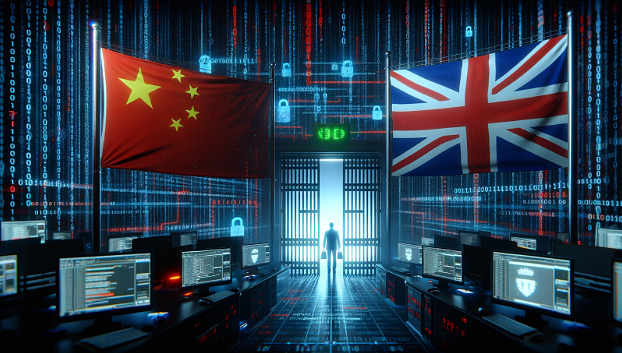Chinese Cyberattacks on UK Democracy Lead to Sanctions

The UK government has taken decisive action in response to a series of cyberattacks attributed to China-affiliated actors. These attacks, which notably targeted the UK Electoral Commission and individual parliamentarians, have prompted the UK to impose sanctions against the entities believed to be responsible. UK Prime Minister, Rishi Sunak, called China “the greatest state-based challenge to our national security.”
The National Cyber Security Centre (NCSC) has identified APT31, a cyber actor affiliated with the Chinese state, as almost certainly responsible for cyber reconnaissance activity conducted against UK parliamentarians' email accounts in 2021. The targeted politicians were notably vocal about the malign activities of China.
Furthermore, a separate cyber incident involving the compromise of computer systems at the UK Electoral Commission between 2021 and 2022 has also been attributed to a China-affiliated threat actor. The NCSC assesses that the actors behind this breach accessed and likely exfiltrated data, including email content and Electoral Register information.
During this attack, the hackers are reported to have accessed personal details of around 40 million voters. This data could be used by Chinese intelligence services for purposes ranging from large-scale espionage to the transnational repression of perceived dissidents and critics within the UK.
In response to these cybersecurity breaches, the UK government has imposed sanctions on a front company, named Wuhan Xiaoruizhi Science and Technology Company, along with two individuals, Zhao Guangzong and Ni Gaobin. However, the slow speed at which the government responded has been criticized.
The NCSC has published updated guidance as part of its Defending Democracy collection, aiming to help political organizations such as parties and think tanks, as well as entities coordinating the delivery of elections. The guidance looks to ensure that organizations and individuals involved in the democratic process are equipped with the knowledge and tools to protect themselves online.
Paul Chichester, NCSC Director of Operations, emphasized the importance of calling out and resisting unacceptable behavior from China state-affiliated actors. The targeting of democratic systems, he noted, is a serious concern that necessitates a concerted effort to defend against. Organizations are strongly urged to follow the NCSC’s advice to enhance their cybersecurity posture and safeguard their operations against potential cyber threats.



Please, comment on how to improve this article. Your feedback matters!